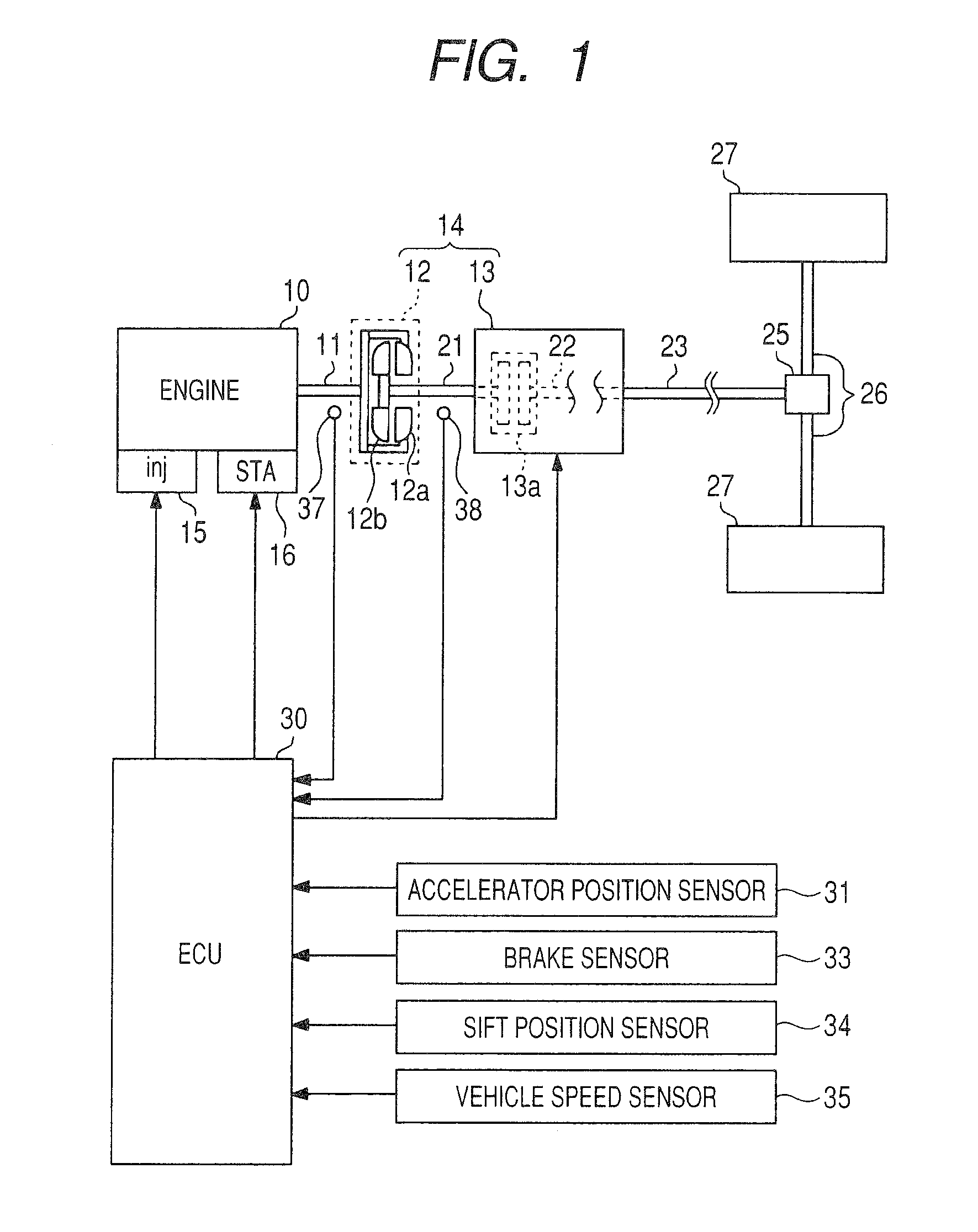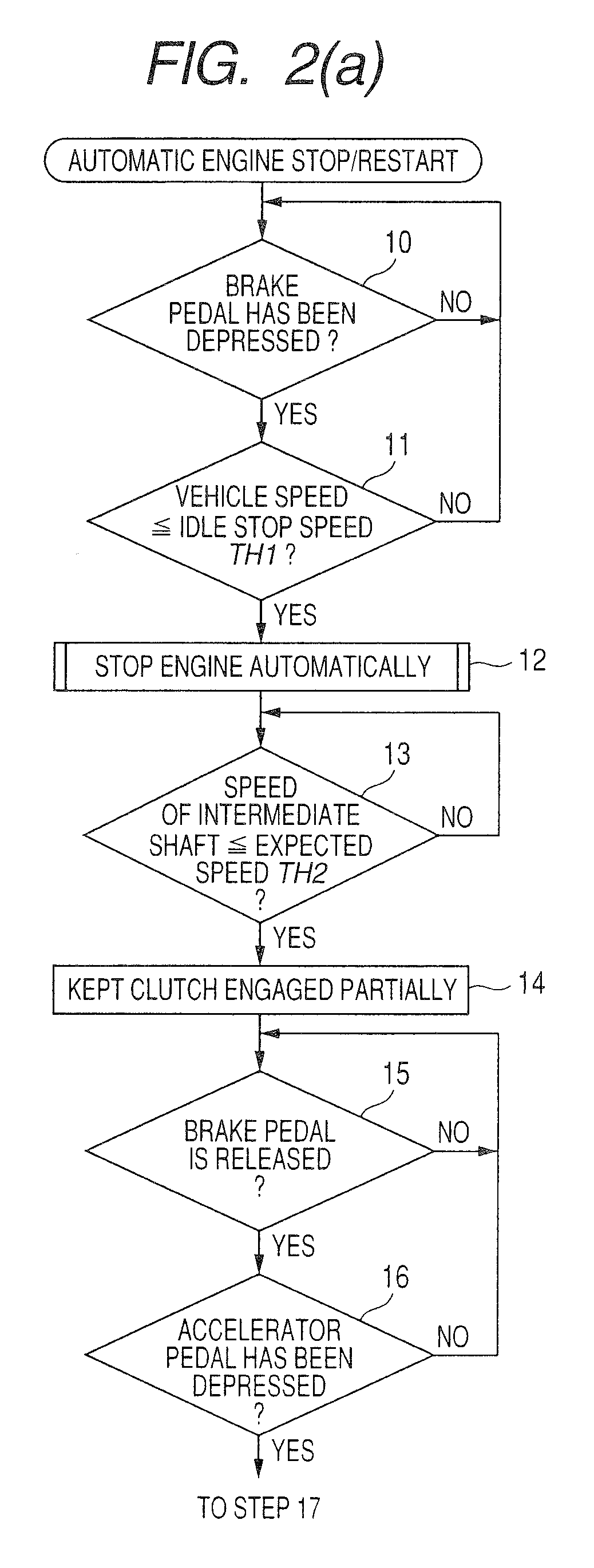[0007]It is therefore an object of the invention to provide a vehicle
control system for an engine-powered vehicle designed to minimize or absorb acceleration shock occurring upon start of the vehicle without sacrificing the startability of an engine.
[0011]Consequently, when the engine is restarted, the controller brings the clutch in the automatic transmission into the slippable state based on the speed of the vehicle, as measured by the vehicle speed sensor. In other words, the controller may absorb the torque transmitted to the wheel through the clutch according to the degree of the acceleration shock. The slippage of the clutch serves to absorb the acceleration shock, thus ensuring the startability of the engine as compared with the conventional system, as discussed in the introductory part of this application, which decreases the quantity of fuel to be injected to the engine to decrease or eliminate the acceleration shock.
[0014]When the speed of the engine elevated by the restart of the engine has dropped below a peak thereof, the controller enters the
clutch control mode to bring the clutch into the slippable state. In typical automatic transmissions equipped with a
torque converter, the speed of the input shaft of the automatic transmission rises, and the torque transmitted to the input shaft increases while the speed of the engine is being increased by the restart of the engine. The engagement of the clutch while the speed of the engine is increased by restart of the engine, therefore, result in an increased degree of the acceleration shock. In order to minimize the acceleration shock, the controller, as described above, places the clutch in the slippable state when the speed of the engine has dropped below the peak thereof upon the restart of the engine.
[0017]In typical automatic transmissions equipped with a
torque converter, the speed of the input shaft continues to rise while the speed of the engine is being increased by the restart of the engine, so that the speed of the input shaft may rise up to the peak of the speed of the engine upon the restart of the engine. Thus, when the speed of the intermediate shaft is lower than the peak of the speed of the engine elevated by the restart of the engine, there is a possibility that the speed of the input shaft exceeds that of the intermediate shaft, which results in an increased degree of the acceleration shock when the clutch is in engagement upon restart of the engine. Consequently, the controller, as described above, may calculate the peak of speed of the engine elevated by the restart of the engine and place the clutch in one of the slippable state and the disengaged state when the speed of the intermediate shaft is lower than the calculated peak before the engine is restarted. This results in a decreased possibility that the acceleration shock occurs upon the restart of the engine.
[0018]The controller may determine the given speed value based on the calculated peak. This ensures the accuracy in determining a threshold value (i.e., the given speed value) for use in determining whether the clutch is to be placed in the slippable state or not.
[0019]When a condition in which the speed of the vehicle, as measured by the vehicle speed sensor, is lower than a given speed value is met upon restart of the engine, the controller places the clutch in the slippable state. In other words, when the speed of the vehicle is relatively high meaning that there is the low possibility that the acceleration shock occurs, the controller does not place the clutch in the slippable state, thereby increasing the number of times the engine torque needed to enable the vehicle to run is transmitted to the wheel quickly, which results in an increase in service life of the clutch.
 Login to View More
Login to View More  Login to View More
Login to View More 


